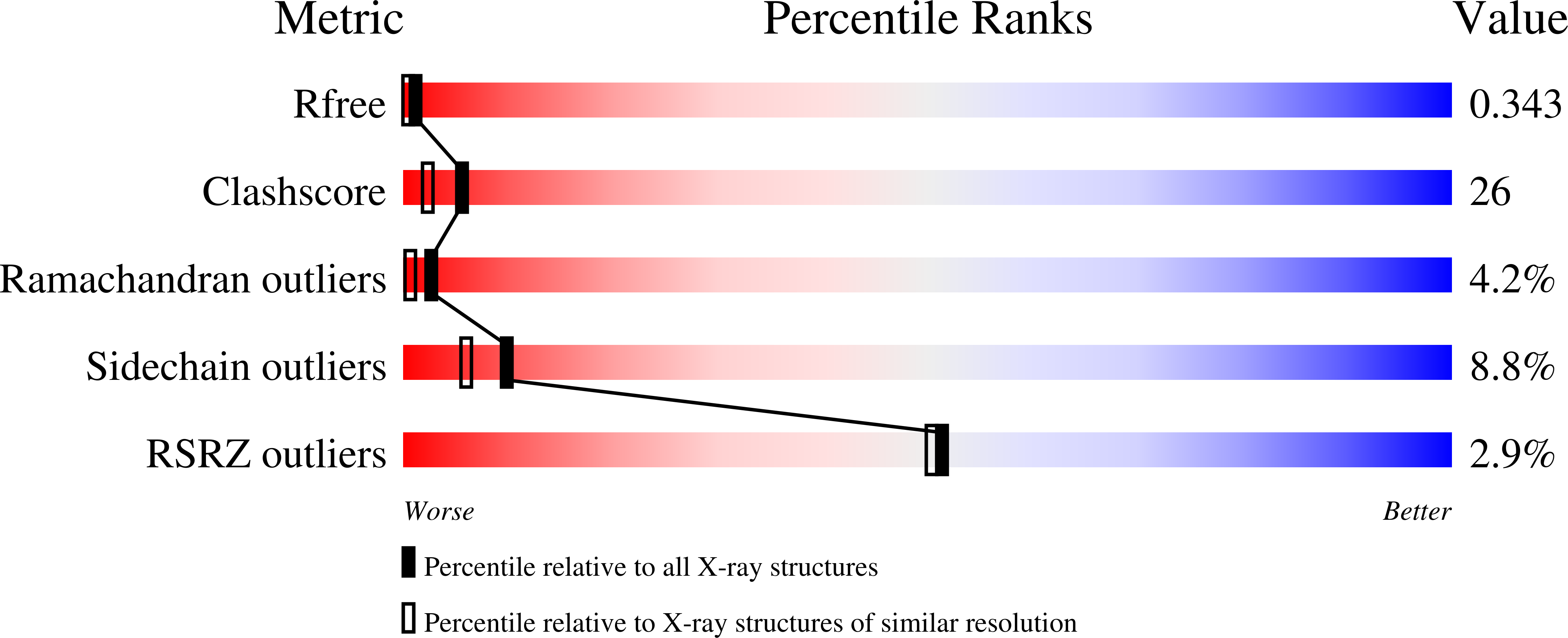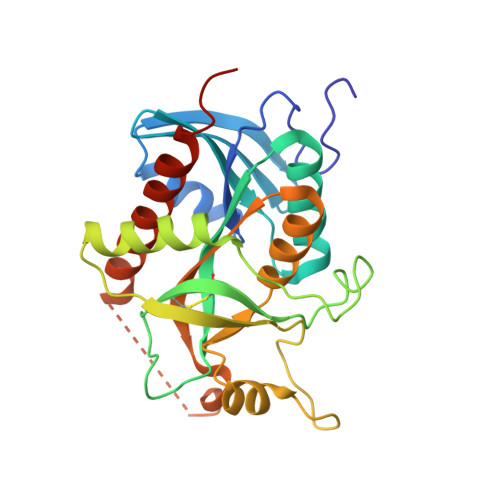Structures of Plasmodium Falciparum Purine Nucleoside Phosphorylase Complexed with Sulfate and its Natural Substrate Inosine
Schnick, C., Robien, M.A., Brzozowski, A.M., Dodson, E.J., Murshudov, G.N., Anderson, L., Luft, J.R., Mehlin, C., Hol, W.G.J., Brannigan, J.A., Wilkinson, A.J.(2005) Acta Crystallogr D Biol Crystallogr 61: 1245
- PubMed: 16131758
- DOI: https://doi.org/10.1107/S0907444905020251
- Primary Citation of Related Structures:
1SQ6, 2BSX - PubMed Abstract:
Purine metabolism in the parasite Plasmodium has been identified as a promising target for antimalarial therapies. Purine nucleoside phosphorylase (PNP) is part of a salvage pathway for the biosynthesis of purines, which are essential for parasite survival. Two crystal structures of PNP from Plasmodium falciparum (PfPNP) in two space groups, each with a single subunit in the asymmetric unit, are described here. One structure, refined to 2.4 A, has an empty nucleoside-binding site and a sulfate ion bound in the phosphate-binding pocket. The second structure, refined to 2.0 A, has the substrate inosine bound to the active centre. Structure comparison reveals alterations in the active site upon ligand binding. The new structures presented here specifically highlight the likely roles of Asp206 and two loops flanking the active site: the beta7-alpha6 loop (residues approximately 161-169) and the beta9-alpha8 loop (residues approximately 208-223). Comparison with PNP in complex with transition-state inhibitors suggests that the purine substrate moves towards the phosphate substrate, rather than vice versa, upon forming the transition state. The single-substrate-containing PfPNP structures also appear to be more flexible than PfPNP bound to inhibitors. Together, these structures serve as a basis for better understanding of ligand binding and mechanism that can be further exploited to optimize the specificity of anti-PfPNP drugs.
Organizational Affiliation:
Structural Biology Laboratory, Department of Chemistry, University of York, York YO10 5YW, England.















